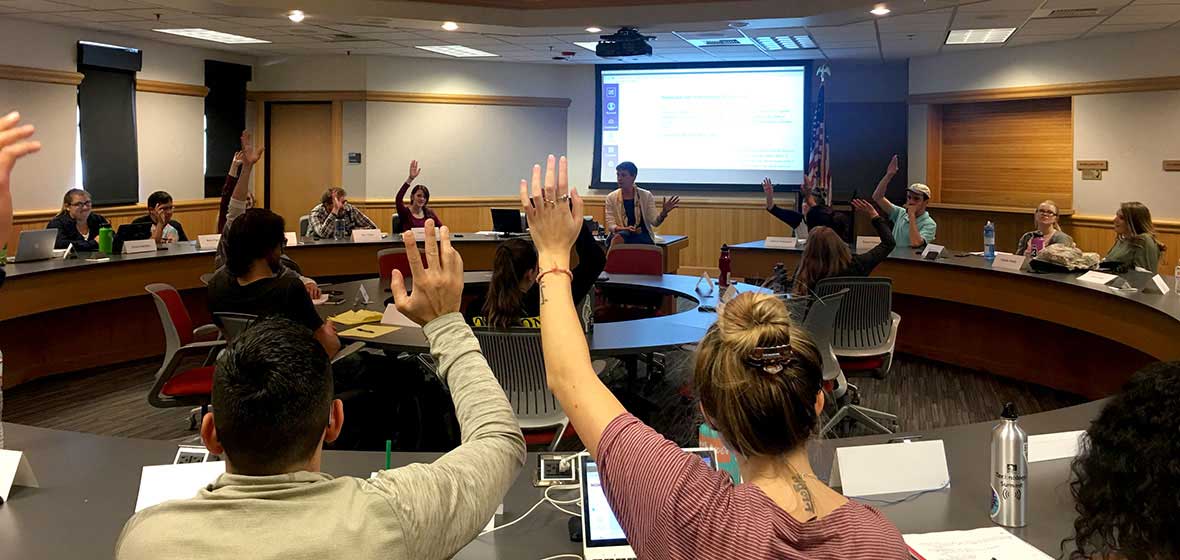A degree in journalism from the Reynolds School can mean a myriad of different things depending on the students' interests. Some students go on to work in newsrooms and do traditional journalism, some focus on public relations, others develop stunning visual skills and become graphic designers at agencies. One thing every student leaves here with is an understanding of media ethics.
Sheila Peuchaud, a Reynolds School professor, teaches students how to be better media consumers as well as producers in an ever-changing world that has different conceptions of what media ethics means. For the general public, Peuchaud says, “media ethics” is often considered an oxymoron.
She stresses the importance of noting that while there are unethical professionals in the field, there are numerous professionals and outlets working to provide the public with accurate information to promote a fair democracy.
“It’s important for media practitioners to understand media ethics so that they can go out in the world and practice their profession in such a way that they are a living example that media ethics are real and meaningful,” she said.
The students who take media ethics at the Reynolds School get a full understanding of the ethical choices that weigh on media professionals and media consumers (it’s required for all journalism majors). She teaches not only for producers but for everyone—because everyone consumes media and in a world where a fear of “fake news” lives, it is necessary to spot falsities.
“With social media, we are all amateur media content producers,” she said. “So, it’s important for everyone to understand how the media content they consume might affect them – even if it’s ‘just entertainment’ it still means something, and it still affects our attitudes and our behavior.”
Peuchaud said as we share content to our own social channels, we are broadcasting ourselves and what we believe in. She teaches her students how to evaluate the content they share so they don’t accidentally spread “fake news.”
In her media ethics class, she first teaches students the values of the system of journalism but most importantly the commitment journalists have to spreading truth to the citizens in our democracy.
“I encourage my students to set aside their own skepticism about the way ‘the media’ operates, and be idealist about the way we should make decisions,” she said. “I teach my students a systematic way to evaluate any situation in which someone may come to harm, to figure out if the harm is justified, to think about alternatives that might cause less harm and to come up with the best course of action.”
Many of her students come back to tell her that they use this way of analysis in their everyday lives and careers, even if they haven’t taken on a journalistic profession.
“I love hearing that because I know that means that ethical decision making has become a habit for them, so it will carry through to their professional lives as well,” she said.
Media ethics at the Reynolds School is an important part of the curriculum and something that professors like Peuchaud view as a “learned skill” that improves with many years of practice.
“I think we are giving our students the skills they need to grow into ethical professionals and making the case that it’s doable and important,” she said.












